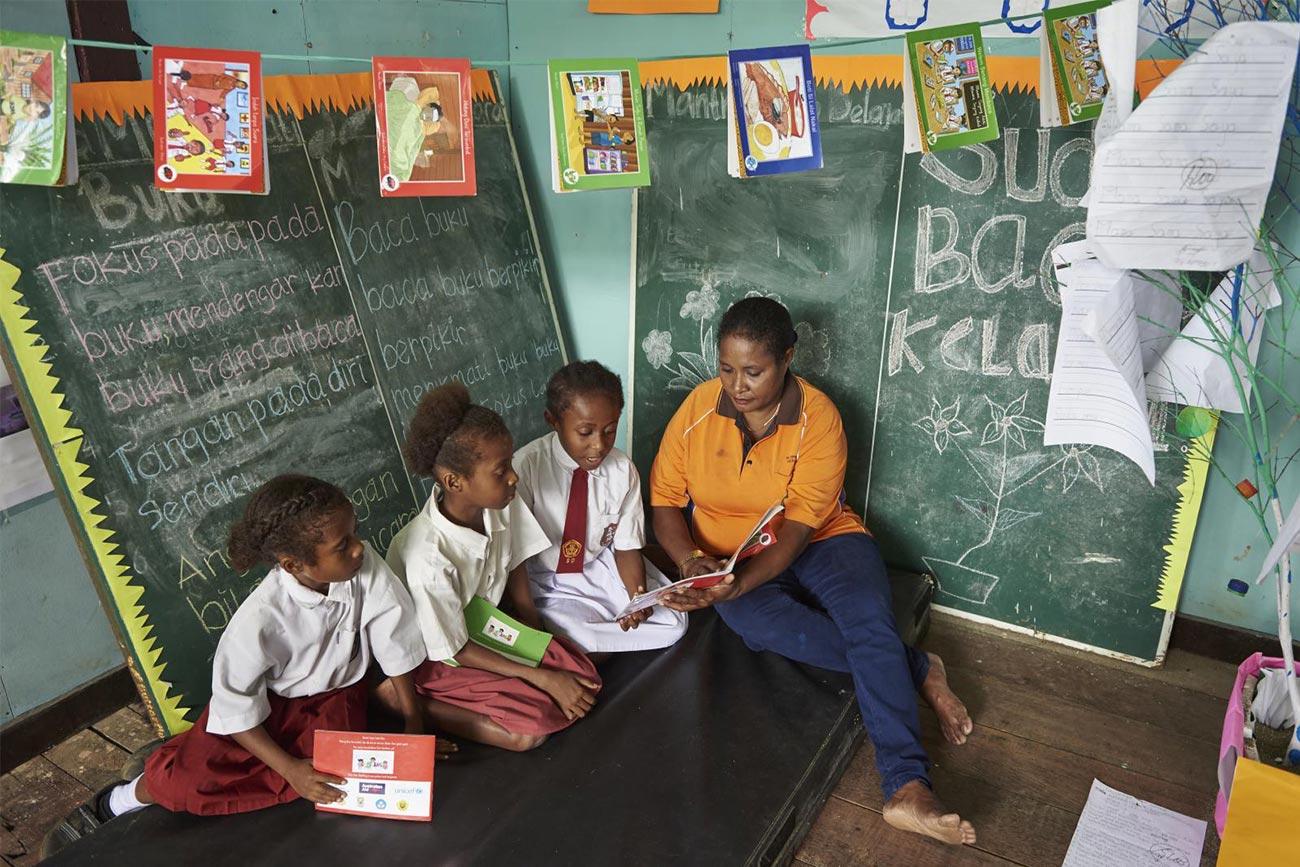Story
Tips for teachers to prevent bullying
17 April 2020

Photo: © UNICEF/2018/Noorani
Happens to everyone, stoppable by everyone
What do I need to do when a child tells me that s/he is being bullied or abused?
- Take the incident seriously.
- Appreciate and acknowledge the bullied for approaching you.
- Assure him/her that it is not his/her fault.
- Show empathy.
- Help the bullied stand up for himself/herself.
- Ask the child about what can be done to make him/her feel safe.
- Talk to each child involved in this situation separately. Avoid blaming, criticizing or yelling at their faces. Encourage and reward honesty.
- Consider the role or influence of ‘peer groups’. Bullying is sometimes practiced by groups. If bullying is practiced by an individual child, with assistance or support from other children, they should also bear the consequences.
- Take measures against the bully. Update the child, his/her parents, and the class about developments.
- Follow up regularly with the child on the progress made regarding this issue afterwards.
- Seek external assistance, if needed. When you face a severe or significant problem that you do not know how to address, report to the school counseling staff or social workers or psychologists. You may want to contact Telepon Pelayanan Sosial Anak (TePSA) on 1500771.
How to address children who are bullies?
- Listen to their version of the story.
- Highlight inappropriate and unacceptable behaviors and remind them of the anti-bullying guidelines and norms established at the school/classroom level.
- Help them by understanding the reasons behind their bullying behavior (such as problems they face at home, lack of enough attention, exposure to bullying behaviors, etc.).
- Demonstrate empathy and compassion by sharing with them the feeling of the child /adolescent being bullied.
- Apply specified consequences to help them learn from this situation. Such consequences need to be relevant to the bullying behavior, respectful to the child, plausible and reasonable in terms of degree and scale to teach the child to better behave.
- The child should fix what he did wrong. For example, by apologizing to the child being bullied, doing something nice to him/her to feel better, help him/her with completing something they are working on, fixing or replacing something they broke or store, etc.
- Appreciate and recognize any positive behavioral change, including admitting mistakes.
- Explain that to receive privileges in the classroom, they need to abide by rules. Such privileges include participating in events, trips, sports, artistic activities, or whatever is deemed appropriate and interesting by the child.
- Talk to their parents and mutually agree on a plan.
Within my class, what can I do to prevent/reduce bullying and peer violence?
- Educate yourself about bullying and peer violence through reading and sharing information content with your peer educators.
- Establish strict and clear guidelines against bullying, as well as reaching an agreement with your students on consequences of bullying (instead of punishments).
- Create an atmosphere of warmth, rapport, positive interest and inclusion among students in your classrooms.
- Keep an eye on children who are more vulnerable to bullying; including newly enrolled children, children who are physically weaker, or children who complain about being bullied by others.
- Encourage children who are more prone to bullying to integrate more actively and their colleagues to help them do so.
- Engage your students in role-playing situations around bullying and how to address this issue. Plan with them how to against bullying.
- Assure your students that you are willing to help them if and when they get bullied.
- Provide assistance and adequate protection to any of the students who get bullied. Make sure that the bullying person is of no threat.
What should I do if I witness an incident of bullying?
- Respond immediately by disengaging or separating the children from each other. Make sure that everyone stays safe. Ask another teacher to help you if needed.
- Stay calm and reassure the children that this issue is under control.
- Demonstrate an assertive non-aggressive behavior without causing the offender any harm.
What can we do at school to fight bullying?
- Raise awareness among children.
- Emphasize on good behaviors and high academic performance alike.
- Train teachers and school staff on how to address bullying.
- Engage parents & students in raising awareness and how to take affirmative actions against bullying.
UN entities involved in this initiative
UNICEF
United Nations Children’s Fund

